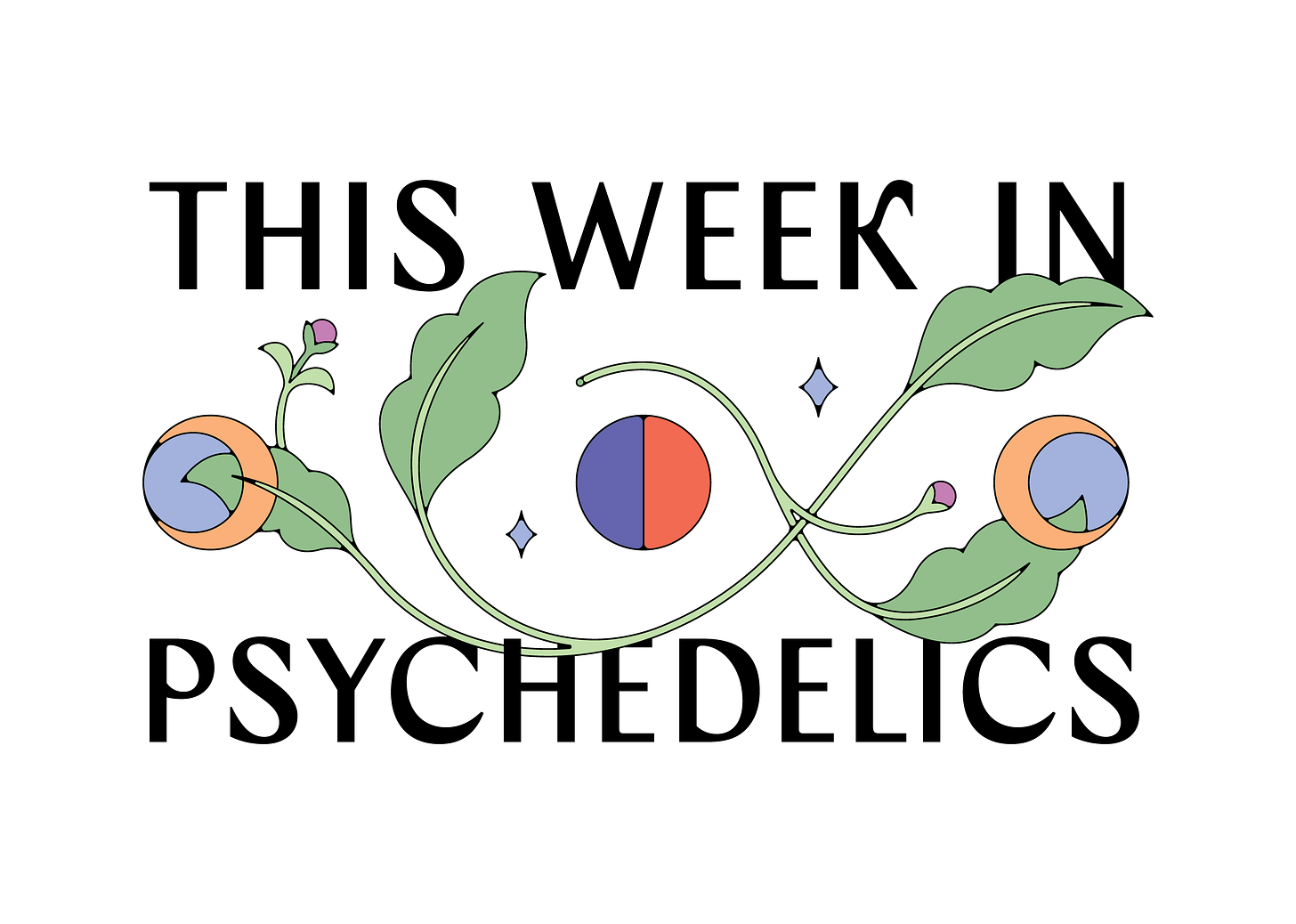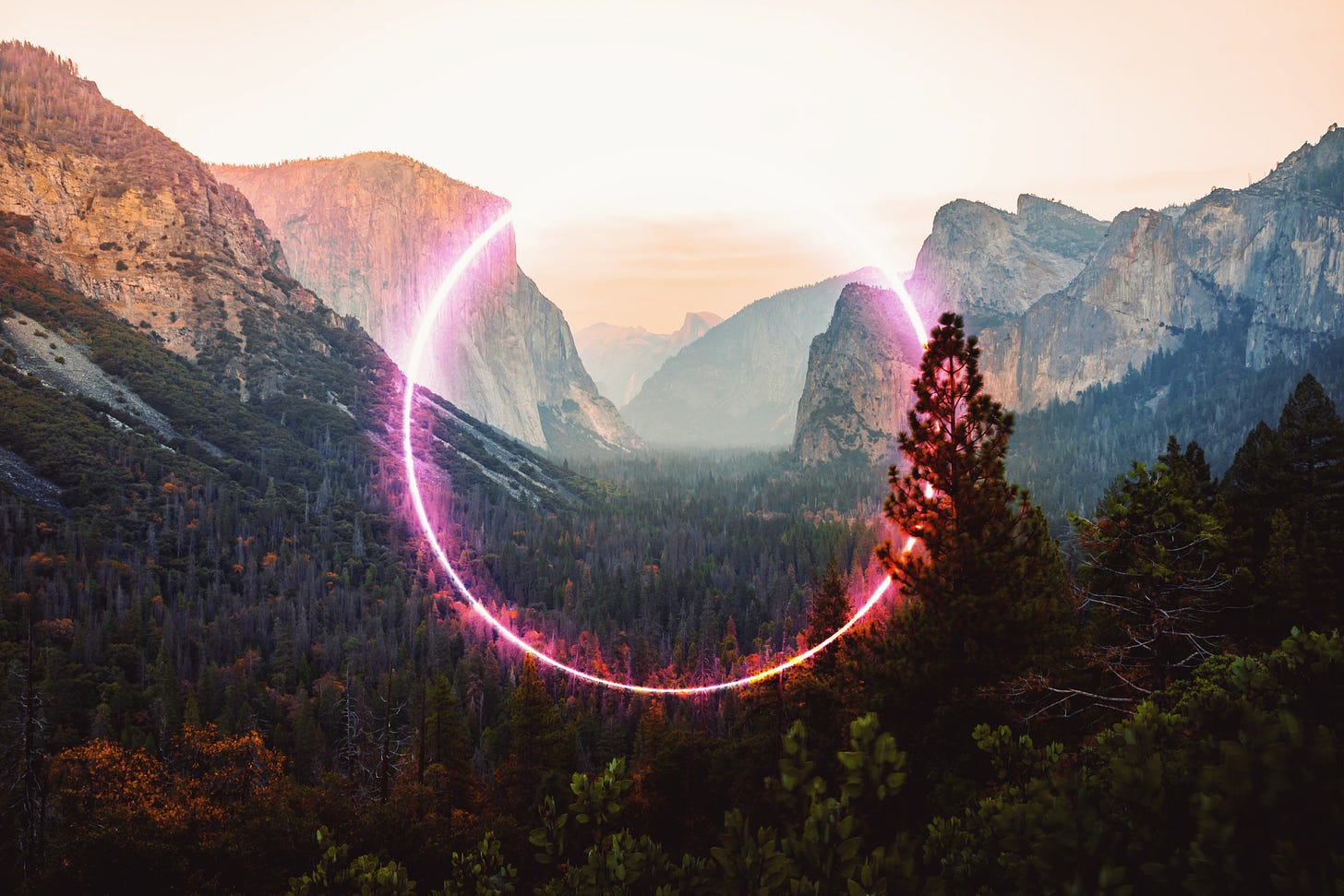This Week in Psychedelics: Depression and psilocybin data, mystical brain waves, and celebrity psychonauts
Happy Friday, and welcome back to The Microdose. Here's what happened this week in the world of psychedelics:
New research: psilocybin and depression. Early results from a new study suggests psilocybin can help treat depression — but with important caveats. Mental healthcare company COMPASS Pathways announced results from a recent clinical trial in which over 200 participants with treatment-resistant depression were treated with COMP360, the company’s proprietary synthetic psilocybin. (These results have yet to be peer-reviewed or published.) COMPASS’s trial was double blinded — neither participants nor clinicians were told who received the psychoactive doses — and participants were required to stop antidepressant use before joining the study. Participants received doses of either 25mg, 10mg, or 1mg (functionally, a placebo), and these early results announced by COMPASS found that participants who received the largest 25mg dose showed significantly lower scores on a depression scale compared to those who received the smallest 1mg dose.
However, questions remain about the methods and potential confounding factors in studies of psilocybin and depression; researchers have previously raised concerns that antidepressant withdrawal and patient expectations about psychedelic experiences might bias results. Some have also raised concerns about adverse effects, as COMPASS reported that 179 patients, some 86 percent, had mild unpleasant side effects like nausea and fatigue, and that 12 patients reported “treatment-emergent serious adverse events,” like suicidal ideation and self-injury. What role psilocybin has in those adverse events is not yet clear, but in STAT, Olivia Goldhill points to one possibility: previous studies suggest participants in placebo or low-dose conditions of psychedelic studies might experience “disappointment reaction,” where patients’ symptoms are exacerbated if their treatment does not appear to be working. All but one participant who experienced serious adverse effects in this latest clinical trial received a non-placebo psilocybin dose. COMPASS’s stock dropped 22% Tuesday, but has made a slight rebound as of Friday morning.
In an exploratory trial run by Maryland Oncology Hematology, COMP360 successfully treated depressive symptoms in around half of 30 cancer patients a week after just one dose. The results have not been published or peer reviewed.
But how does it work? While these two recent studies suggest psilocybin can help treat depression, how psilocybin might induce healing is unclear. In yet another new study, published this week in Translational Psychiatry, Johns Hopkins researchers studied 24 patients being treated for depression with psilocybin therapy, searching for clues about how psilocybin affects participants’ brains and behavior. They took measures of participants’ cognitive flexibility through a brain game, collected images of brain areas that support cognitive flexibility, and used fMRI to capture brain function. After psilocybin therapy, participants showed greater neural flexibility the following week, and scored higher in measures of cognitive flexibility for the following four weeks — but the effects were non-linear, meaning not all who experienced cognitive flexibility also experienced neural flexibility. The takeaway? We still have a lot to learn about exactly how psilocybin works in the brain, but, as the authors write, this work could help researchers predict which “sub-populations of patients may be more likely to benefit from psychedelic therapy.”
There has never been a more exciting – or bewildering – time in the world of psychedelics. Don’t miss a beat.
Celebrity psychonauts. This week, psychedelics got a healthy dose of attention from celebrities — at psychedelic conference Wonderland Miami, former boxer Mike Tyson says psychedelics changed his life. “My mind was blown away with psychedelics and I just wanted the world to know what I experienced,” he told conference attendees. This week on Red Table Talk, Jada Pinkett Smith describes how plant medicine helped her with depression. Smith, her son Jaden, and her mother Adrienne Banfield-Norris, chatted about psychedelics with GoDaddy founder Bob Parsons and journalist Lisa Ling and her oncologist husband Paul Song about their experiences. Michael Pollan also makes an appearance to explain psychedelics’ legal and scientific status in the US. Tyson and Smith join a growing number of celebrities who are openly talking about their use of psychedelics. Even if celebrity news isn’t your thing, it’s worth noting the mainstreaming of psychedelics in popular culture.
The potential of psilocin. This week, the University of California at San Francisco’s Translational Psychedelics Research Program and psychedelic drug development company Filament received FDA approval for the first-ever clinical trial of psilocin. Like psilocybin, psilocin is found in mushrooms — it’s what results as your body metabolizes psilocybin. By itself, psilocin is much more potent than psilocybin, but it’s also more difficult to preserve. Filament has developed a method of extracting psilocin, which the company says could result in faster-acting treatments, fewer gastrointestinal side effects (psilocin sidesteps an enzyme found in psilocybin suspected to cause GI issues). The first phase of the trial will include 20 participants.
Mystical brain waves. Visit any forum dedicated to psychedelic use, and you’re guaranteed to find questions about mystical experience. What constitutes a mystical experience is often somewhat subjective, and difficult to define scientifically, but many advocates of psychedelics believe mystical experiences are what underlie deep personal revelations and the potential for long-term healing and well-being.
In a new study published in Frontiers in Psychiatry, researchers from Buenos Aires, Barcelona, and Santiago measured participants’ brain activity using electroencephalography (EEG) after participants inhaled the psychedelic DMT, a hallucinogenic compound found in plants like ayahuasca. Strong shifts in theta brainwaves were correlated with “feelings of unity and transcendence” — hallmarks of mystical experiences. Of course, theta waves are not the only factor that influence the likelihood people may report a mystical experience; drug dosage and personality traits play a role as well. But, the authors say, this work suggests that baseline EEG screenings before psychedelic use could allow researchers to better predict the likelihood that their treatment will induce a mystical experience.
Roots to Thrive, a psychotherapy program affiliated with Vancouver Island University, held the first legal group therapy session with psilocybin in North America.
The New York Times explores the potential, and potential pitfalls, of ketamine therapy for treating depression, as well as veterans’ role in advocating for the decriminalization and legalization of psychedelics.
According to the psychedelic magazine DoubleBlind, “mail order ayahuasca is now a thing.”
The UC Berkeley Center for the Science of Psychedelics is looking for an executive director. Could it be you? Learn more about the role and apply here.
You’re all caught up! Have a great weekend, and stay tuned on Monday for 5 Questions, our weekly Q&A with a leader in the psychedelics space.
If you know anyone who might like the latest on psychedelics in their inbox, feel free to forward this to them, or click below.
Got tips? Email us at themicrodose@berkeley.edu.










Hi! I absolutely love the illustrations in this publication. Would you be able to share the artist's name? I was looking for credits but couldn't find any.